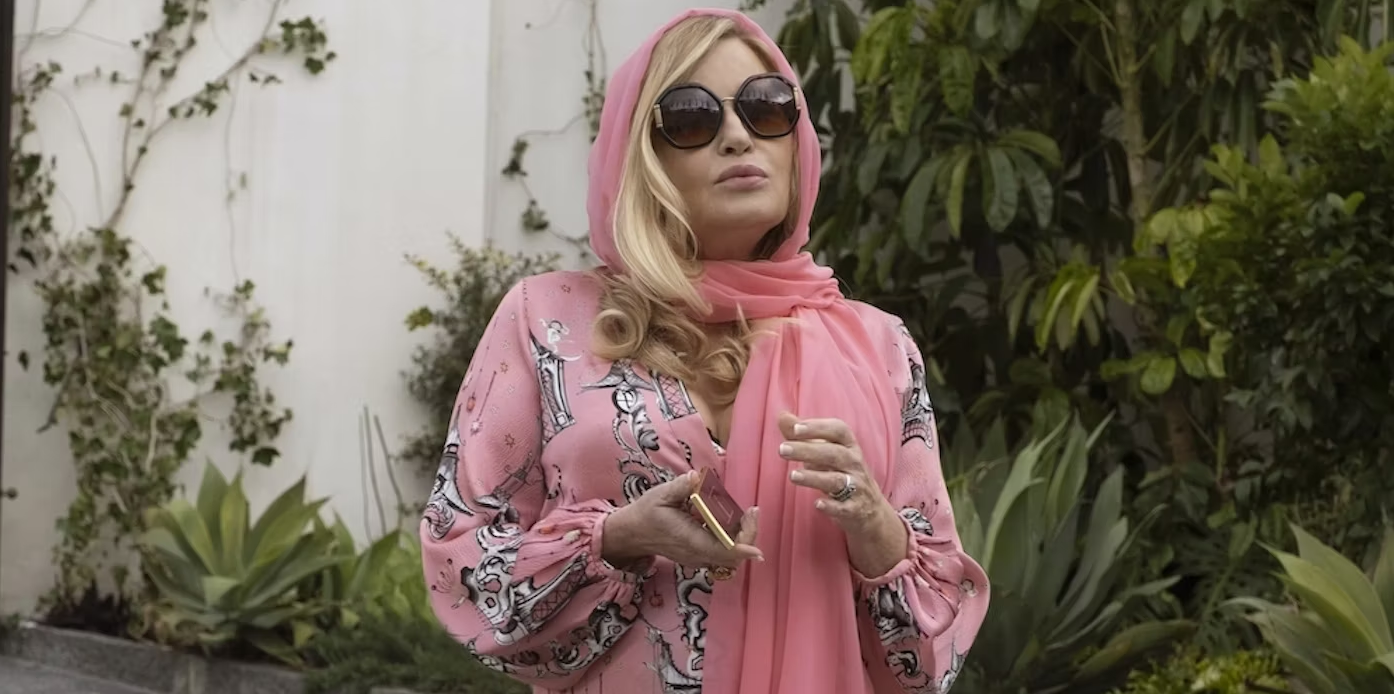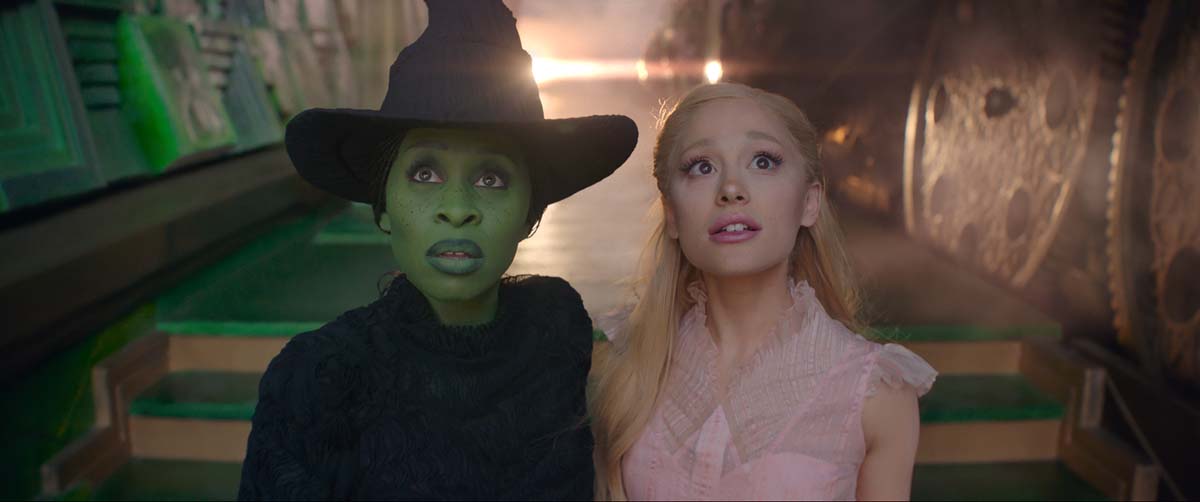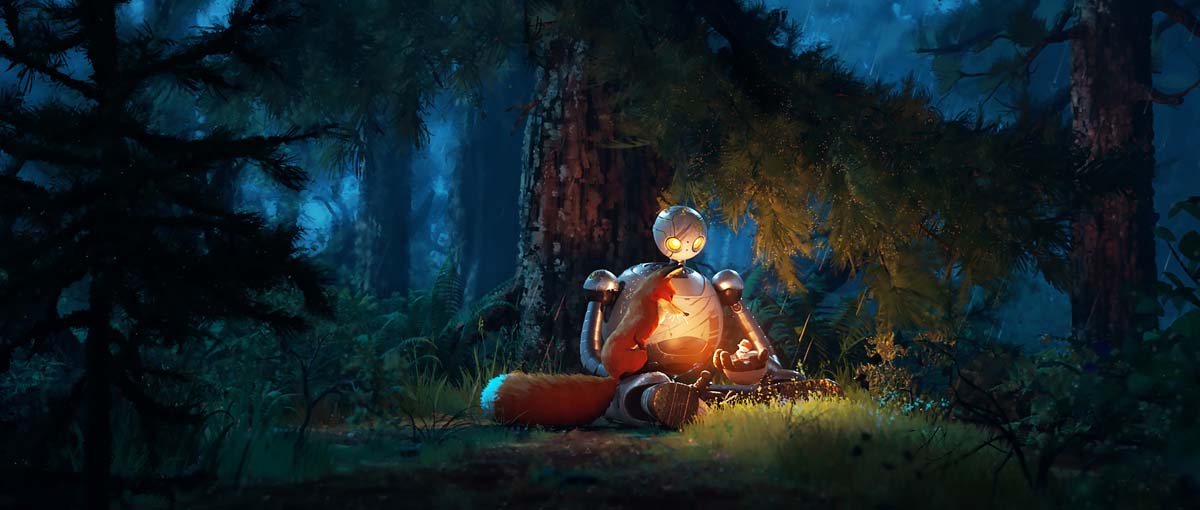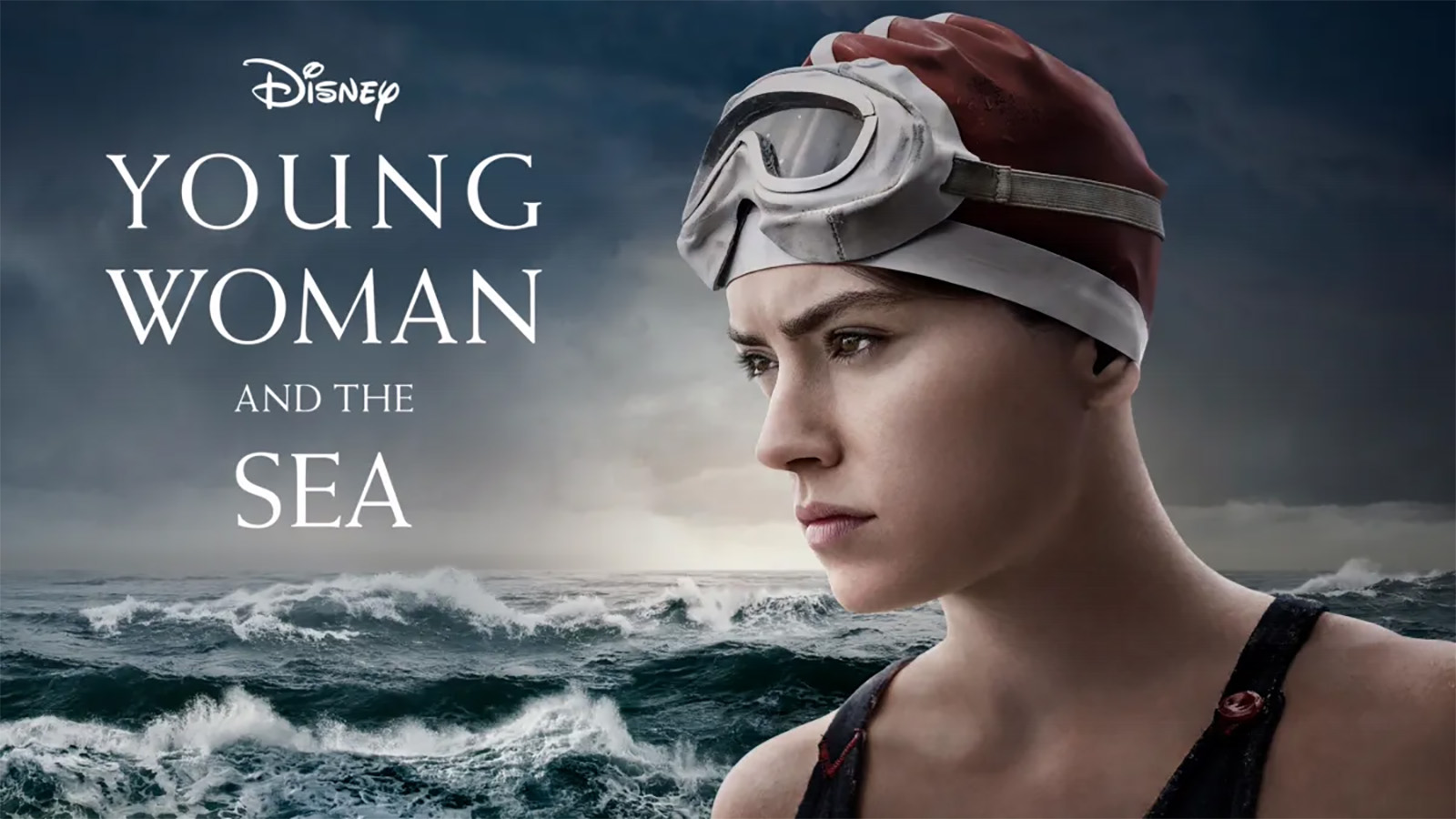THE WHITE LOTUS
Emmy nominees Heather Pearson, ACE, and John Valerio, ACE, discuss the value of editors on location, how to stay ahead of your audience, and more.
Today we’re talking with the editors of the TV series, The White Lotus which has been nominated for Emmy Awards in the Outstanding Picture Editing in a Drama Series category. Heather Persons, ACE has been nominated for her episode, “Abductions” and John Valerio, ACE has been nominated for his episode “Arrivederci.”
Heather has been nominated three times before for Emmys, three times for ACE Eddies, and for a BAFTA. She’s edited features, like Sunshine Cleaning and was an additional editor on My Big Fat Greek Wedding. Her TV credits include, The Flight Attendant, How to Make it in America, and The Ron Clark Story.
John won an Emmy for his “Departures" episode from Season 1 of The White Lotus, and won an ACE Eddie for his “Arrivederci” episode from Season 2. He’s also been nominated for another ACE Eddie and a BAFTA.
His work includes TV series like Tom Clancy’s Jack Ryan, The Old Man, Tokyo Vice, and Parks and Recreation.
Art of the Cut: The White Lotus
What prompts you to vote for someone when you get an Emmy or ACE Eddie ballot? What makes you think that is a project that I think deserves an Emmy?
PERSONS: I try to watch as much as I can. First of all, obviously I look at shows that I love. I look at all the shows I love, and sometimes that doesn't necessarily mean that it's the fanciest editing. Sometimes it's just the most moving. Mostly it's just the things that move me the most. Like, for instance, I love Reservation Dogs. I love that show. I'm just looking for things that resonate with me personally. And then within those categories, I do watch what's nominated and then I do think about the editing.
So basically saying that if it's a good program, the editor must have had a lot to do with it.
PERSONS: Yeah, because I know what it means to make something that works and connects with people because it's hard to do that these days. There's so much out there.
VALERIO: I totally agree with Heather. I think you go through it and you look at everything and it's overwhelming. The nice thing about nominations, it does allow you to select a number of things. I choose the things that resonate with me that I was engaged with and I was moved by or laughed. Whatever it is, it can't watch everything. So it's an unfortunate thing that there's so much great work out there that people are doing and they're not getting the recognition because they're not like me, that I'm fortunate enough to be on a show that everybody's watching. Once the nominations are out I do a deeper dive into the shows and watch them. It's so hard to judge. You never know what an editor had. This editor pulled out some crazy tricks to make something work and you'll never know that. As editors I’m so proud of what we do because we're the unsung heroes. No one really knows because it's always behind the scenes.
PERSONS: And it really comes down to the script. I mean, that's what I've learned.
How do you stay ahead of the audience?
PERSONS: Mike set it up by planting the seed at the beginning where you learn each season that somebody dies at the beginning. And what's interesting about Mike's work is he cares about character and human foibles. And so what's interesting is he set that up, but then he sort of went about his way of telling a story that he kind of usually does, and there were things built in where you think, “Oh, that guy seems dangerous,” it must be him.
VALERIO: We leaned into it a little bit more. It was just a hook for him to get people into these characters. And it was never really about the mystery of whodunit. Once they're hooked in it, then he can sort of trick people into watching this story about these characters and their relationships. But yeah, it did evolve into that, though.
PERSONS: Yeah, and that's really what he cares more about. He cares more about these fallible, lovable, horrible people.
VALERIO: He leaned into it more this second season than the first season. It was a little bit more plot devised with the murder mystery of who did it. And the second season, I know I had to be much more mindful of giving things away than in the first season because Tom Hollander — we talked about it all the time — the twirly mustache guy “Oh, he's the bad guy.” I just found that I was always trying to sort of lean away from that. Even once people started to suspect that he's up to something, you start to suspect that Quentin has ulterior motives and doesn't have the best of intentions. I always tried to keep that revelation is far off as I could.
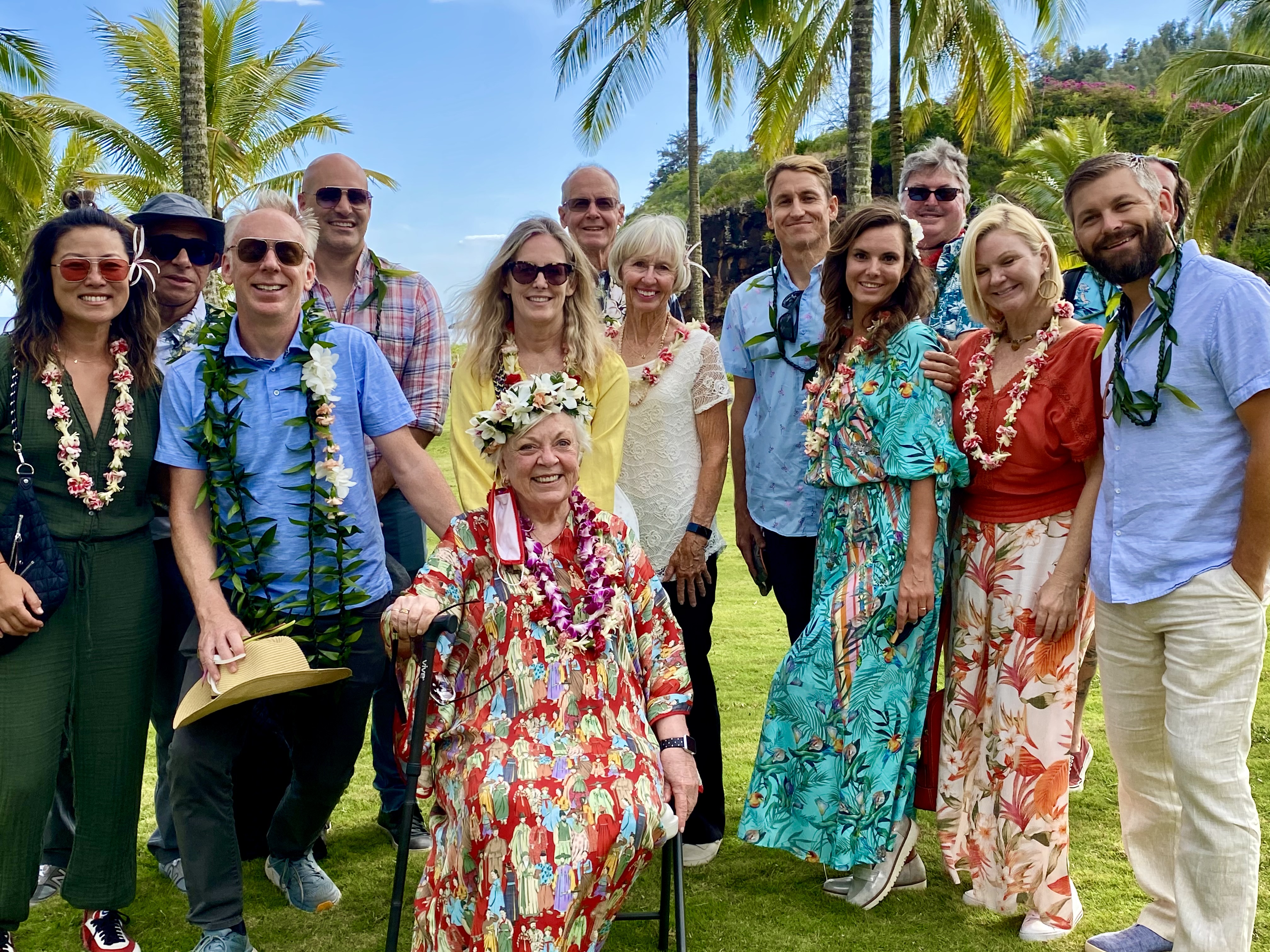
Mike White, his mom and the post crew in Hawaii... obvs.
PERSONS: You had more scenes with Tom Hollander being potentially more evil.
VALERIO: Yeah. I think so. So it was always a little bit of a dance.
PERSONS: I had the episode where he and Tonya first meet and first start to become friends, and I was trying really hard to make him seem just like, so much fun and the friend that you'd meet on vacation. He loves Tonya. He loved her fashion and just wanted to be friends. We really tried to make him seem not scary.
Yeah, that's kind of what I was leaning into, was the ability to, through performance, really guide an audience in one way or another or hide it.
PERSONS: We did modulate that. It's true. Yeah.
VALERIO: And I think it was because the story was a little bit more plot driven. I think we were a little bit more conscious of viewers sort of reading into things. What are people going to think if we use this line reading? Is this a heavy-handed line reading that's going to suggest something or this look, it was fun to play with what we were thinking these expectations were and then subverting them.
PERSONS: Yeah, There was also the dynamic between Ethan and Cameron, which kind of escalated, that was also a way to sort of distract people away from Quentin by thinking that maybe something bad would happen with those guys.
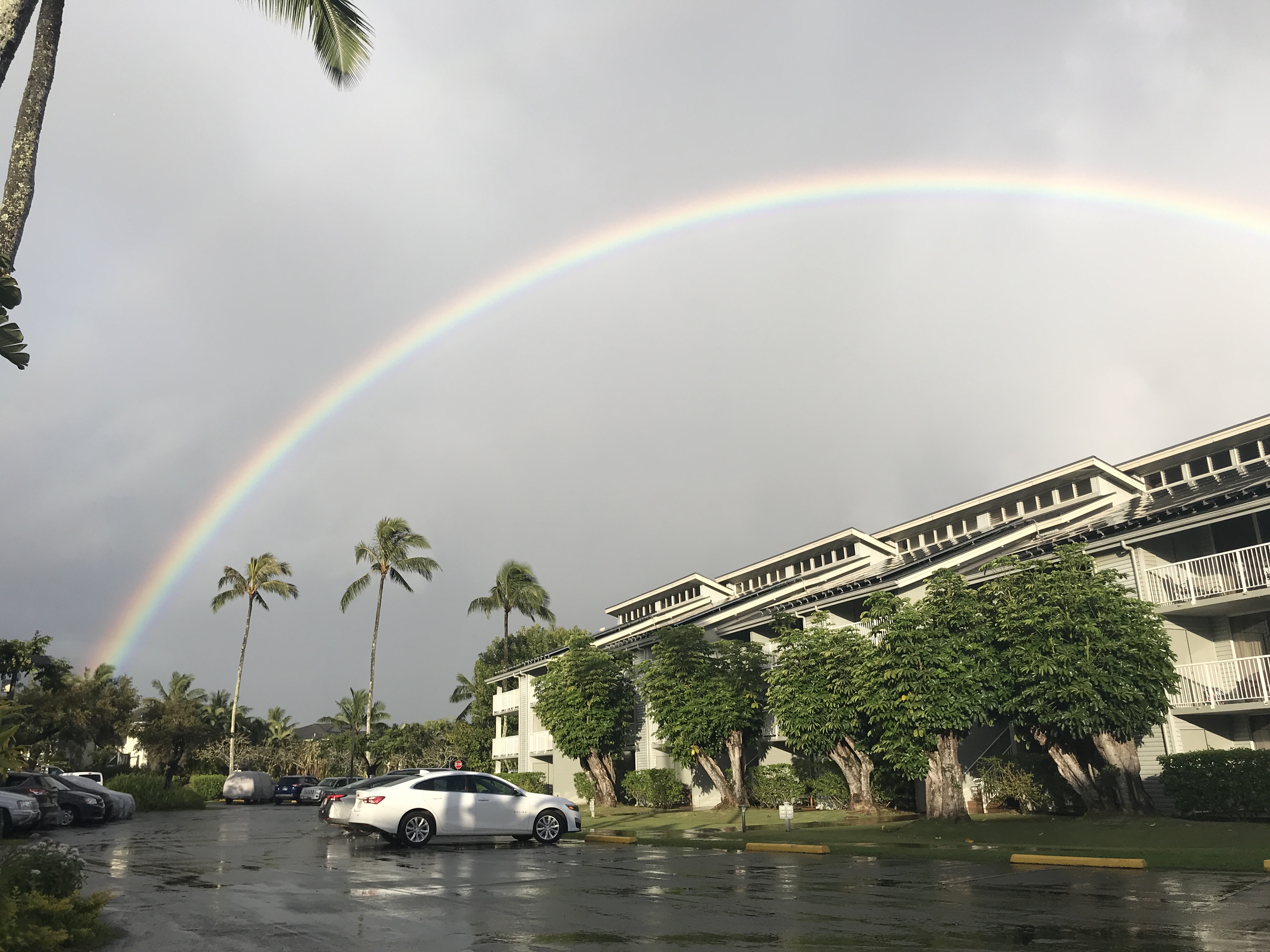
The "post facility" for The White Lotus.
VALERIO: That's a good point.
PERSONS: So that was another way that we kind of…
VALERIO: Leaning into other people to throw them off as red herrings a little bit. You're right.
Did you deliver all the episodes at once? Once you'd finished the entire season were you able to go back and decide, “Oh, maybe I could sprinkle this reaction shot in or maybe I need to take that out because it's too much of a tell.”
VALERIO: We had that luxury in season one, but season two was a mad dash. It was so stressful. We were cutting while we were airing. Season one was like what you just said, but season two? No, we were on the clock and had no time. We were still cutting the last two episodes when the first premiered.
Were you editing on location and if so, why? What was the advantage to that, or were you in LA?
PERSONS: John and I both went to Italy for about a month each, editing in our hotel rooms. And then afterwards we were in Hawaii because Mike has a house there.
VALERIO: We're so blessed, man. Cutting in Italy, living there for a month and then living in Kauai.
What was the value? I mean, they had to put you up. They had to fly you over. What was the value to the production, do you think, in having you in Italy for a month each?
VALERIO: Mike just likes having us around. There's a lot of second unit stuff. He liked having Heather and I there. He trusts us to go and find pieces that we feel are missing. Little connective transition things. It could be all of those landscapes and the B-roll and everything else. Those are things that Heather and I went and shot. We knew we kind of things we were looking for: pieces that were missing, getting from one scene to the other, Heather said, “Oh, we need this shot of the DeGrasso’s. We can't just cut from them here to here. It'd be nice to have them coming down the hall” and certain things as we were in the middle of cutting inserts and things like that, it was helpful for him for us to be there to go and handle all of that.
It was more useful not necessarily to have you cutting there, but to be working with second unit?
PERSONS: It was valuable for us to be there. We really saw it. We were in it, We were breathing it and feeling it. And I think that you understand the dailies better, you understand the geography. Things just make more sense. And you also have more of an instinct about, “What's cool about this place?” Because that's what's cool about the show. These people are in this extraordinary place. And if you kind of have a real sense of it, you can use it. Like when you were in the hotel, John was shooting all the portraits and stuff or “Lemons are a big deal here.” Or, shoot the ocean. It just brings a scent and an authenticity and it makes it like come alive. And it was the storytelling, of course, but it was also infused by the mise en scene.
VALERIO: Yeah, the location is a big character.
PERSONS: Yeah, it really was.
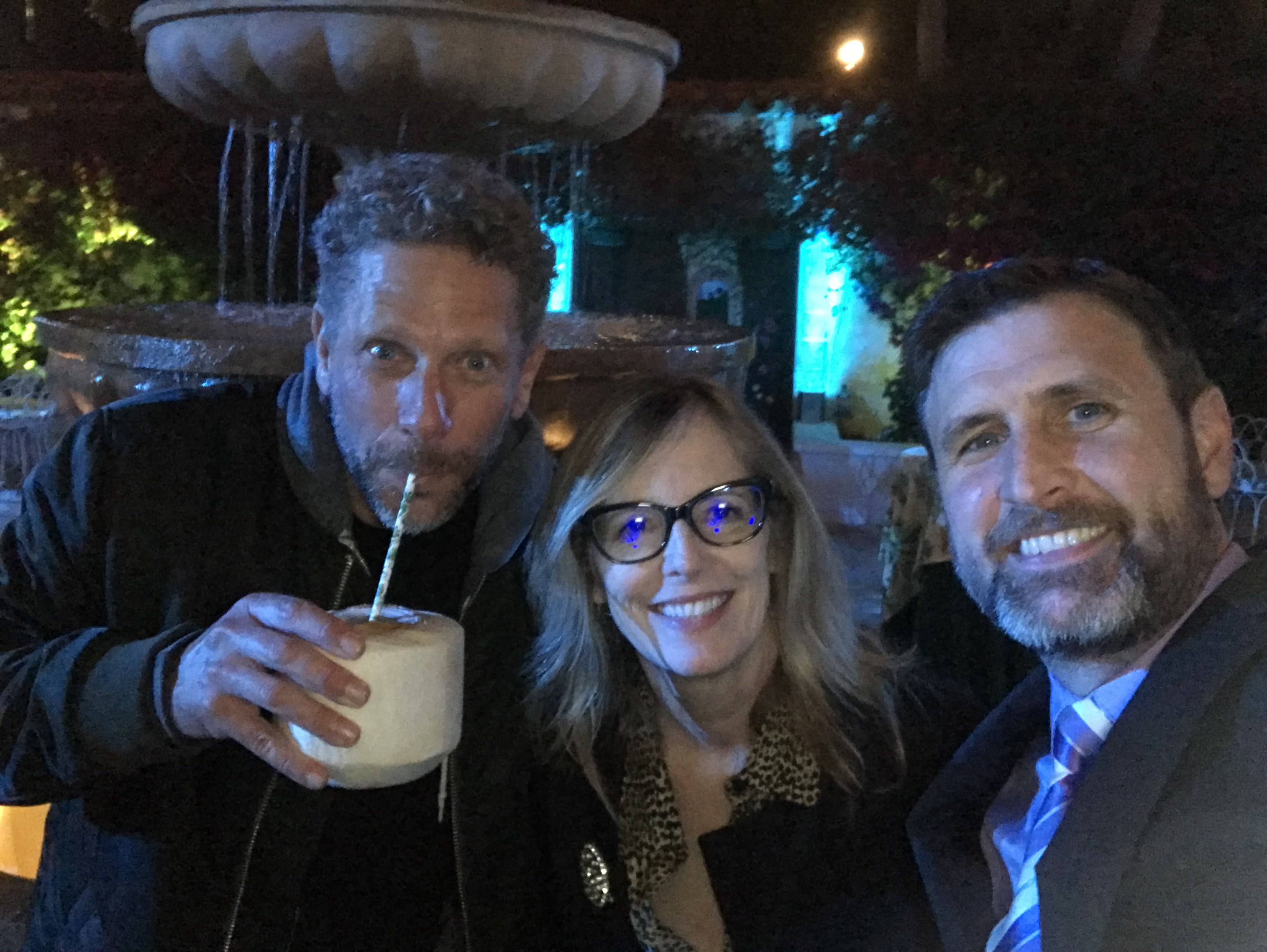
Heather Persons, ACE with the DP and Post Supervisor.
VALERIO: And so it was always what kinds of imagery can we get that's evocative of this scene or this storyline so that we build out this library of all this stuff. And then when we're cutting, we're able to add punctuation to scenes and elevate certain moments just from leaving the feeling that you have in one scene and then building off of that and going to something dynamic that's also continuing that feeling and moving it forward.
I don't really know Jennifer Coolidge or Aubrey Plaza, but they both seem like ad libbers to me. What does it do for your editing to have a lot of ad lib?
PERSONS: Jennifer Coolidge is definitely an ad libber. She's a deeply creative artist and she's a good friend of Mike's and he lets her rip. He wants to get the dialog that he writes because he's a very specific storyteller. But then after he gets what he needs, he'll let her fly. A lot of times we'd find nuggets in there that were priceless. As long as it was supporting the storytelling, we would try to put in as many of those as possible. Aubrey wasn't really that ad lib-y. Did you find her to be that?
VALERIO: No. She'd experiment and play around within the performance and sort of the total spectrum of emotion from snark to vulnerability. Everything you're saying about Jennifer… when Mike lets her rip… I always talk about how Jennifer is always the hardest to cut, and I always qualify that as being a compliment. But it's because she's always giving you so much amazing things. It's difficult to sort of cull that down and modulate it so that you believe it, and it's not all over the place. Hilarity in one moment and tragic and trauma in another. How do we do this so we're just not like flipping up and down. So it's a total compliment to her and and her talent, all those nuggets that she gives you, it obviously it's just a lot more work and look at the result.
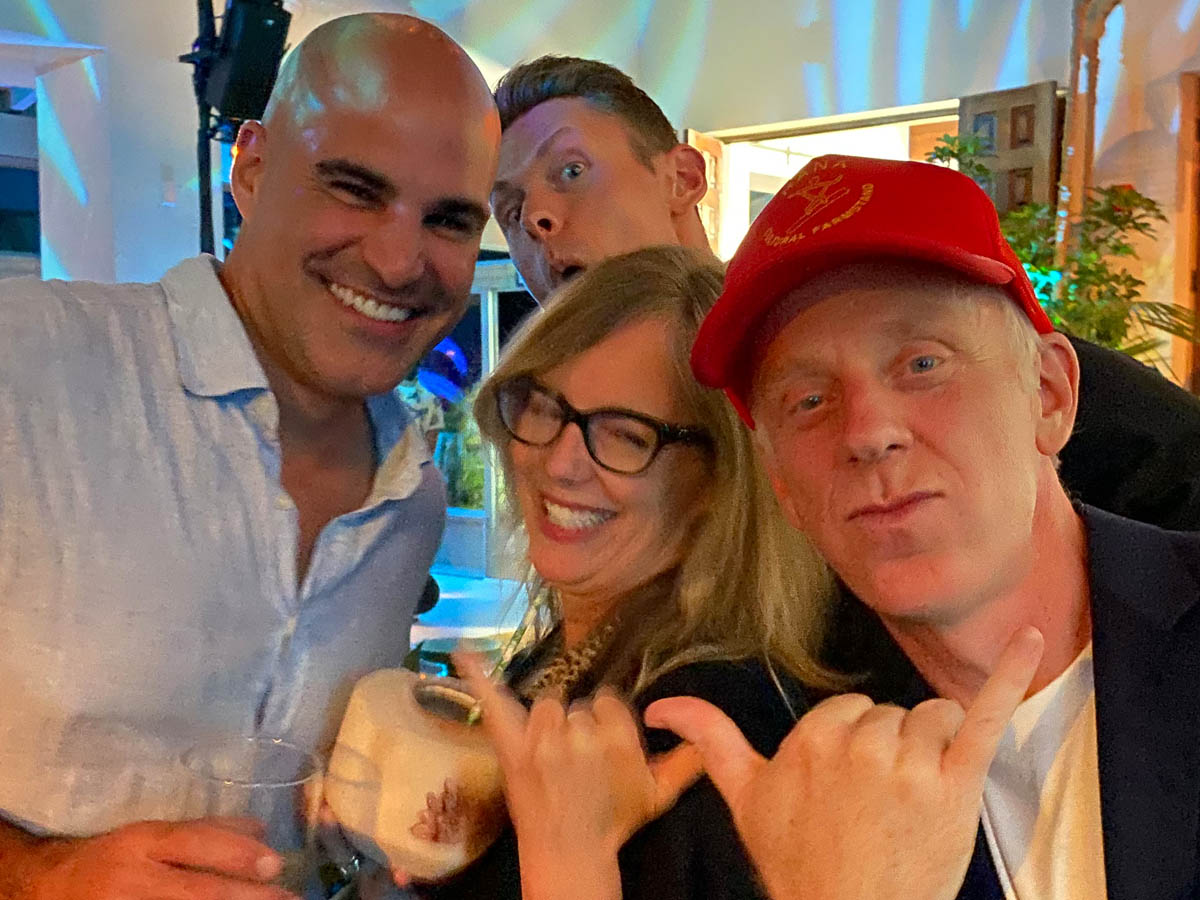
John and Heather and Mike.
PERSONS: When you're working with a performer who is really ad libbing a lot, the person they're playing against, it affects them too, because they're more traditional actors where they memorize their lines and they do their lines. But if they're playing against somebody who's doing all these other crazy things, a lot of times they lose their way. They're not really sure. They're trying to adlib, too. They get caught up in the moment and it can sometimes derail their performance. So that's why it makes it a lot of work, because you have to find the pieces that fit together.
Did you have a proudest scene: the way it turned out or the way that you were able to manipulate it? Or just a most difficult scene?
PERSONS: I think in season one, my favorite scene was the scene with Jennifer on the boat when she tried to scatter her mom's ashes. And that's because of the writing. This sort of tragicomic moment where this sort of ridiculous, insane person that you don't really think very highly of, you suddenly realize that she has all this depth and pain and wound. And then also, Jennifer was ad libbing up a storm and really gave us some doozers in that moment. So that was really fun. And then in season two, I had so much fun in episode two, cutting the sequence where the girls, the two Italian escorts — and so funny, those actors are so wonderful and talented and I just couldn't have enjoyed it more. In episode six, there was it was sort of building up. It was like the crescendo to the end of the season and there were just a lot of juicy sequences. The farmhouse or the DeGrasso family goes and Bert realizes that you can never go home. A lot of really emotional scenes. So that was satisfying. And then Tonya was going crazy sleeping with the male prostitute, the coke dealer, and it was just so much really juicy material and shot so beautifully. And those were all challenges and really a lot of fun.
VALERIO: Oh gosh, am I cheating if I just say all of it? The thing I love about cutting the show, you really get to play and flex all the different muscles, the heavy, dramatic emotional scenes you can play with action and fighting and then the comedy and the laughs and cutting fun montages. It's all there. I love and am proud of the scene with Ethan and Harper and the finale when they come back and he slams the door and says, “You fucked him!” They start fighting. And then there's just the fun of cutting action with Cameron and Ethan fighting in the ocean. That was so much fun to do.
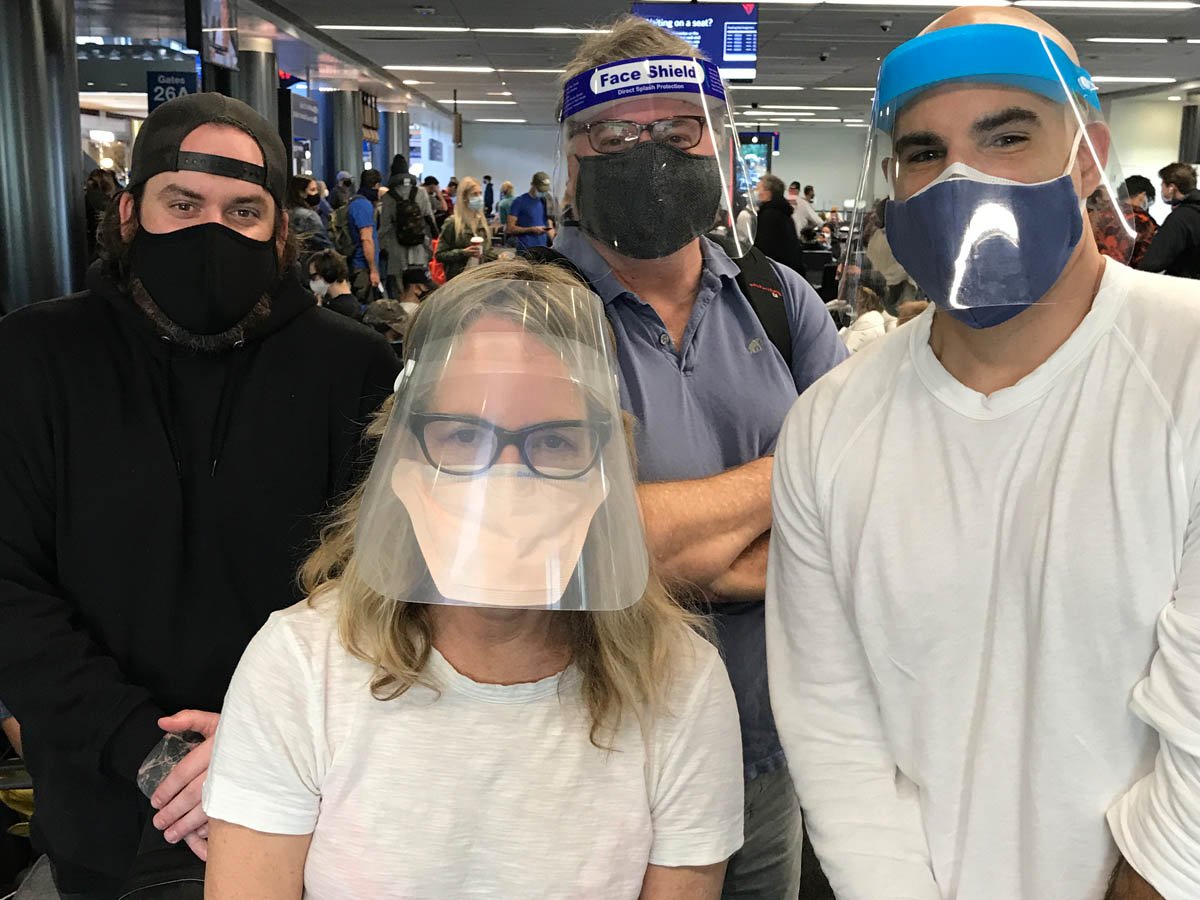
John and Heather and their assistants heading to Hawaii, pre-COVID vaccine. In the back row are Brent McReynolds (John's assistant from season 1) and Bob Allen (Heather’s assistant)
PERSONS: Can I just say, I loved that sequence where they were fighting on the jet skis!
VALERIO: That was the very next thing I was going to bring up! As far as montages, I had so much fun with that. You just get to be so creative. I think it was fun. It was dynamic and it told the story.
PERSONS: I loved how you found that piece of music.
VALERIO: I think it was one of those things that sort of like worked in harmony with each other. I first started by finding the pieces to tell the story of their playing chicken and the standoff and finding all the right beats and moments. I, roughed it out, constructed it, and then, you KNOW this is one of those moments there has to be music here. I listened to all these things, then I heard that one song and it was Eureka! I actually just laid it in just roughly and it was one of those beautiful moments — people know what I'm talking about — sometimes you cut something and you drop in the music and miraculously all the beats of the music line up with what's happening! And you think “Whoa, wait a minute. How did that just happen?” I have a little bit of a theory of why that happens. I think as editors, we have this internal sort of rhythm. There's this rhythm and musicality to it all, and I think when we're cutting, it's inside of us and it's just there. So then when you drop the music in the music is just kind of lines up that way. We feel it. We have that meter with us and then you drop it in and boom, there it is.
Did you have to cut for time at all, or were all of your edits more just to streamline the story and that's the only real purpose of it, to keep the pace of the scene?
PERSONS: We had to cut a lot of time, especially in season two. They were running very long.
VALERIO: They were like 80, 90 minutes, right? And we had to cut them down to 60 minutes.
PERSONS: We didn't have that experience on season one. Season one was pretty easy, but season two, it was actually pretty hard because Mike — he's a very strategic storyteller. He's not a guy who writes a bunch of extra stuff that you can get rid of very easily. It was a journey to figure out how to make it work. Ultimately, we got there, but some episodes are over an hour because we just couldn't do it.
VALERIO: Six is like 2 or 3 minutes long and seven they let us keep long because we just couldn’t.
PERSONS: Especially with comedies. That's always the challenge: to try to be as economic as possible. Sometimes you surprise yourself. You think you can't live without something, and then you take it out and it works. So you just have to experiment.
You mentioned, Heather, how great the writing is, and I always hear of “actor bait” that writing is is actor bait. You see this great writing: I'll be able to get a great actor for this. What about an editor? Do you look at projects like this and say, “I have got to be on this because the writing is so phenomenal.”
PERSONS: I wish I could say that happened more… [all laugh]
Wait until the WGA loses the AI battle and everything's written by AI.
PERSONS: God, I hope not. I try to hold out until I have that feeling. I turn down a lot of things. I'm not interested in, serial killers. There's a lot of things that I just don't connect with, even if it is good. Sometimes, even if the writing is really good and I'm not interested in it and I don't want to hang out in it for 6 or 9 months, I won't do it. I have to really feel like it's something I want to spend my time and my energy on.
VALERIO: I always try to do things that I think. I'm going to enjoy and spend time with and I’ll hold out as long as I can until I just have to work. I do enjoy the work, even if it's something that I'm not necessarily immediately drawn to. I'll always find something in there that I enjoy about it and just sort of accepting the challenge. Sometimes I like to challenge myself and do things that I am not comfortable with that are going to keep me up at night and give me anxiety because I think, “I'm not cut out for this. I don't know what I'm doing.” Earlier on, I just took everything and I think it's only been rather recent where I'm at in my career, where I can think a little bit more about the projects that I want to take.
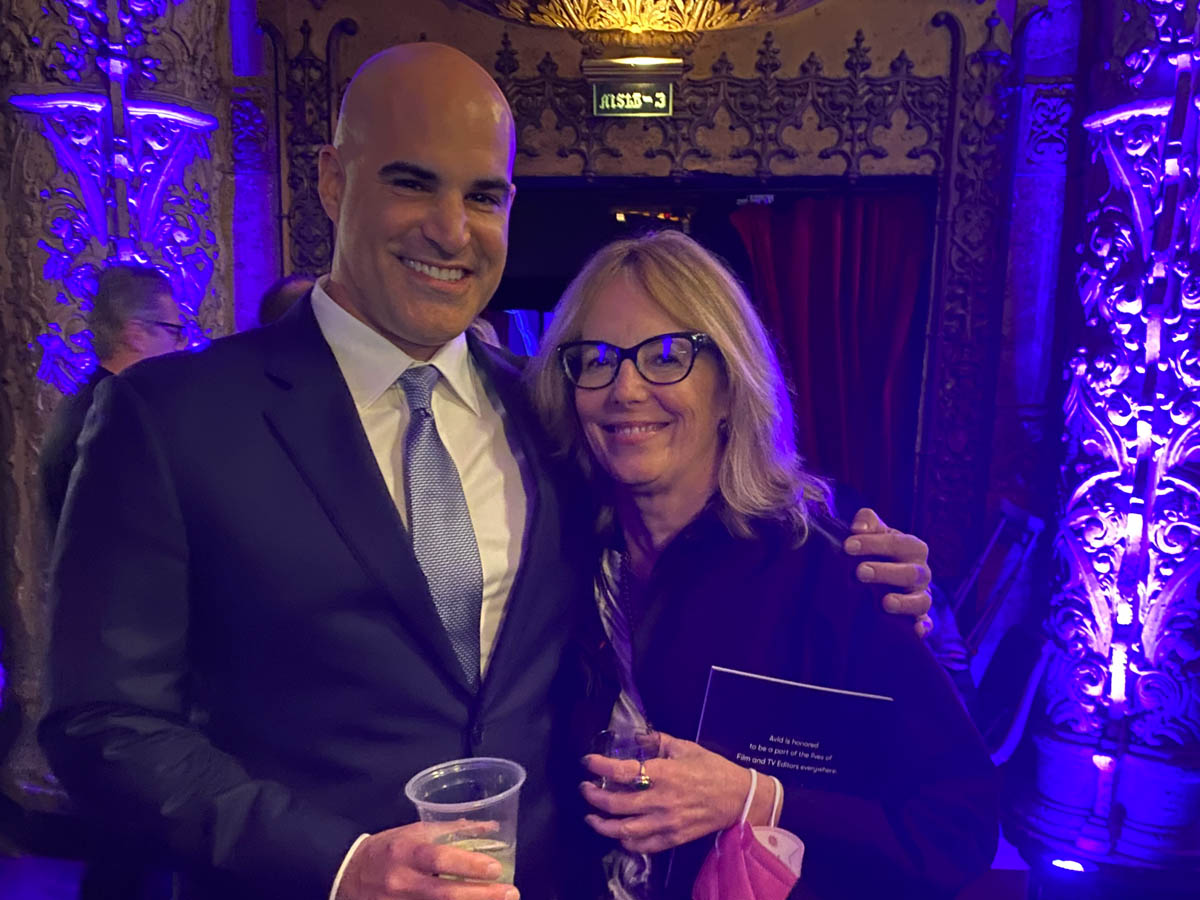
John Valerio,ACE and Heather Persons, ACE at this year's ACE Eddies (I think).
PERSONS: Not only the directors but also the producers. You know, that's so important. And whoever the studios are.
VALERIO: That’s important too.
And are those people that you are always familiar with or do you have to reach out to either your agent or other editors to ask, “Hey, you worked With this guy. Is this going to be okay?”
PERSONS: I ask my agent and sometimes I'll ask other editors who've worked with people, but sometimes other editors don't really want to say. I don’t know if you really get real information. But I think from an agent, you can get the gist. Yeah, they know a lot of the players.
I'm always thinking about what the editor is choosing, why you're choosing things. As a fellow editor, I figure, “Oh, there had to have been coverage of that. Why didn't he use it?” The example that I have is Tonya’s on a yacht and she realizes something's bad's going to happen and she takes off. She runs to the bathroom — or I think it was the bathroom or bedroom — i'm assuming that there's coverage of the other people saying, “Oh my gosh, there she goes. We got to go chase her,” but it's not there. I think there's great story reasons for that. Can you explain why you chose to stay in her POV?
VALERIO: I personally was trying to have fun with the idea: by this time in the in the story, certain things have come to light with Quentin and his ulterior motives. By then the audience knows: “Quentin's not the guy that we think he is. That we know.” But is Quentin, the guy that's trying to murder Tonya? So, that kind of question I was still trying to sort of play with as long as I possibly could. I was hoping that even though the viewers think, “Yeah, this guy is up to something,” I was still trying to at least play with the idea of it still as much as possible that just maybe it's still in her head. Even though Quentin has bad intentions, maybe it's not exactly what she thinks it is, so she's being paranoid. That was the kernel of thought of why Mike and I chose to stay with Tonya and have it be her point of view.
Yes. When she got up, we have all the guys freaking out, looking at each other, rushing to the door and banging on the door, frantic that, “Oh no! Our plan’s falling apart.” To me, instinctively, it's just more interesting not to see all that and be in Tonya’s head and play with the idea that “I know something's up, but maybe she's just paranoid here.” It's a bolder kind of way to go. And we cut it that way and once it was in that way, we didn't play around with showing the coverage of the other guys because we just sort of knew that's how we wanted it to be.
Actually, I was there when we were shooting all that in Sicily and I was on the boat with them and we were able to talk about it. So going into it, we both agreed in that moment when we were shooting it, what we wanted to do, but we had it just in case. You never know. We just stayed true to what we were talking about doing and cut it that way. And it just felt so right to us. It just felt like that's the way it needed to be.
PERSONS: I think that's why that sequence was so powerful, in a way. It was because it was sort of a departure and it was really subjective. When she comes out of the bathroom and she's shooting everybody — I think that’s on a oner? You don't really see what she's seeing or anything. I thought that was just really cool and powerful because it just makes you feel a lot more for her and it makes it more original and personal, and it's not sort of a clinical shoot-em-up action sequence. It felt more heartbreaking and tragic because you were really with her.
These are all choices I liked. I'm not complaining or criticizing any of this stuff or disagreeing with any of it. It's just things that I thought of: I bet they had coverage of other things, and it's interesting to me that you didn’t choose to use it. The other one that I was thinking of was Tonya going over the side of the boat is played very cleanly. You could have cut to expression on her face and the splash in the water and none of that happens. Talk to me a little bit about that decision of the simplicity of the edit of that.
VALERIO: Yeah, I was there for that as well. There were a lot of discussions. That was tough because it wasn't just we're dealing with stunt performers and we're dealing with the logistics of how are we going to sell her hitting her head on the dinghy below. It just didn't seem right that something like that would be cut up. I think we need to see this all happen in one shot. I really just need to see her fall, simple, clunk. We just hold on the frame. But how do we sell it in one shot without cutting it up? It required a little bit of VFX. We're able to sort of get all the emotion we needed out of Tonya in her tight profiles as she's popping up onto the side of the boat and we're there for that. So then you think, “Oh, she's made it, she's in clear.” Then to just sort of die such a silly little death. That's kind of what you do: let me imagine how that feels or how that plays. If it's cut up with all the angles and you visualize that and you think, “That just doesn't feel right.” This is what it feels right. How do we get this in a oner? They framed it up and we figured out how we'd pull it off with VFX effects and that's what it was.
What kind of collaboration were you able to do either together or how did you interact with Mike as you were cutting separate episodes?

From left to right is... Zoe Bower (John's assistant editor), John, John's wife Shin An, Bob Allen (Heather's assistant), Heather, and Farah Abdou the post production supervisor.
VALERIO: Heather was upstairs, I was downstairs, and Mike would sit with me and work with me and give me notes and go up to Heather and back and forth. We had more time in season one to have fun and collaborate. But this was such a sprint. I just had my head down just trying to get through my episodes. Unfortunately we just had the blinders on doing our own thing and Mike was the one that sort of would go between us and he'd take things that had Heather cut and put it in my episode or there was a scene that he lifted from one of my episodes and it went into one of Heather's episodes. We still would watch each other’s stuff and talk about it, but it was a little bit more of: “All hands on deck. We just kind of need to get through.”
PERSONS: That's true. And John is so great with music. He helped me out with music in certain places, and I was really grateful for that.
VALERIO: Thank you. I appreciate that. And I would watch the way Heather was doing things within the scenes and she would help me out there. The things she was doing would sort of inspire me. With performance and character and things like that, I would watch something and think, “Oh, interesting! For some reason I'm believing Harper much more than I am in what I'm doing.” I would take inspiration from the things Heather was doing there, and how I think maybe we helped each other.
Thank you very much for being on Art of the Cut. Congratulations on your Emmy nominations and good luck with the voting.
PERSONS: Thank you. Thanks for inviting us.
VALERIO: Thank you very much.
